Opening at the 19th International Architecture Exhibition of La Biennale di Venezia, FundamentAI offers a visionary take on urban design, one shaped not only by artificial intelligence, but by the ecological intelligence of Venice’s lagoon. Developed by ecoLogicStudio in collaboration with the Synthetic Landscape Lab at the University of Innsbruck, the project invites visitors to experience architecture as a co-evolution between human, machine, and microbial life.
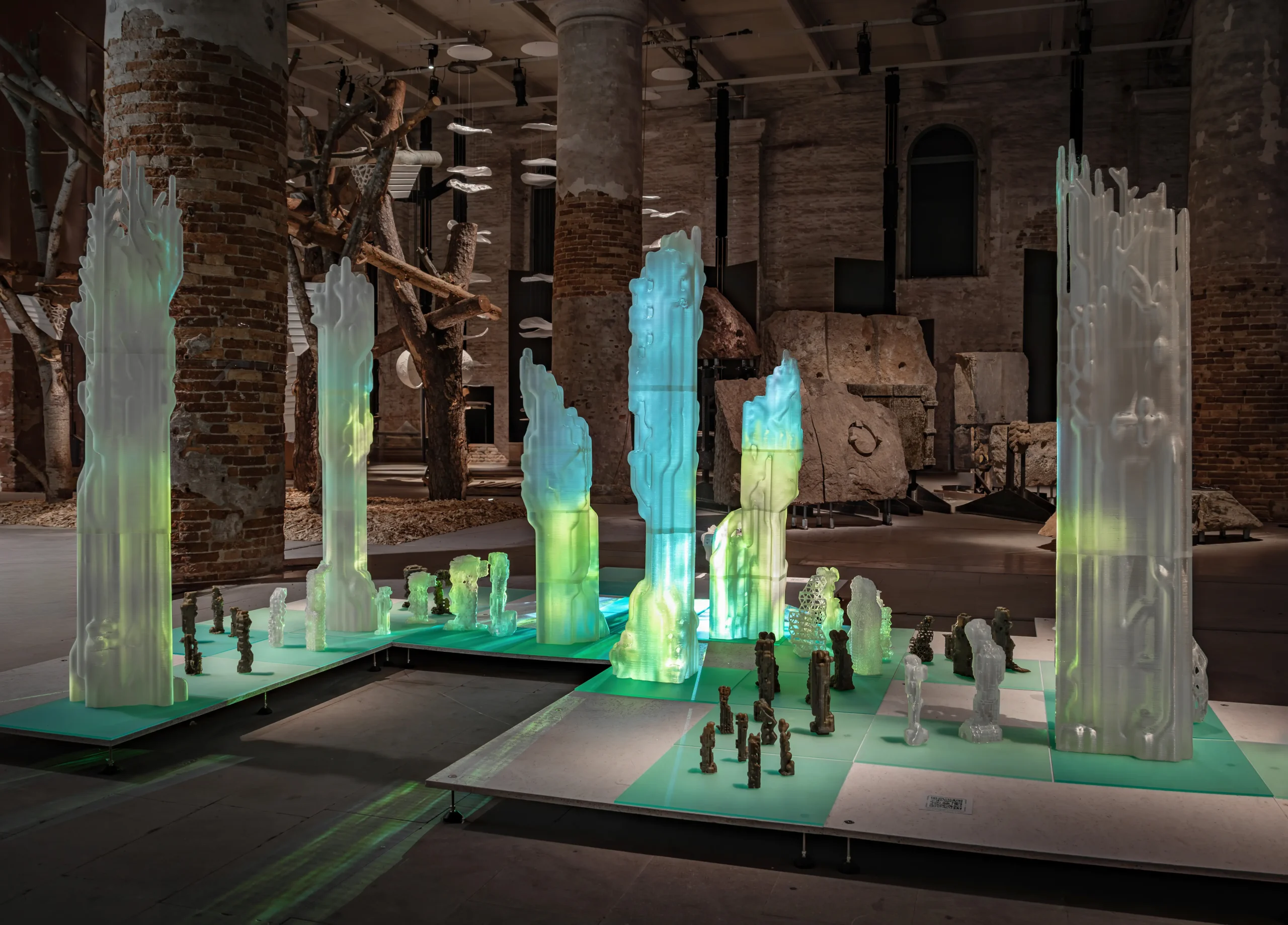
Located in the historic Arsenale, FundamentAI anchors its immersive installation in a provocative question: What if cities didn’t just respond to people, but to nature itself? Anchoring the project is a speculative but deeply grounded design workflow that listens to the rhythms of Venice’s water, sediment, and algae, and uses them as data for architectural generation. Blending biotechnology, generative AI, and real-time ecological feedback, the system transforms the invisible murmur of the lagoon into light, form, and spatial memory.
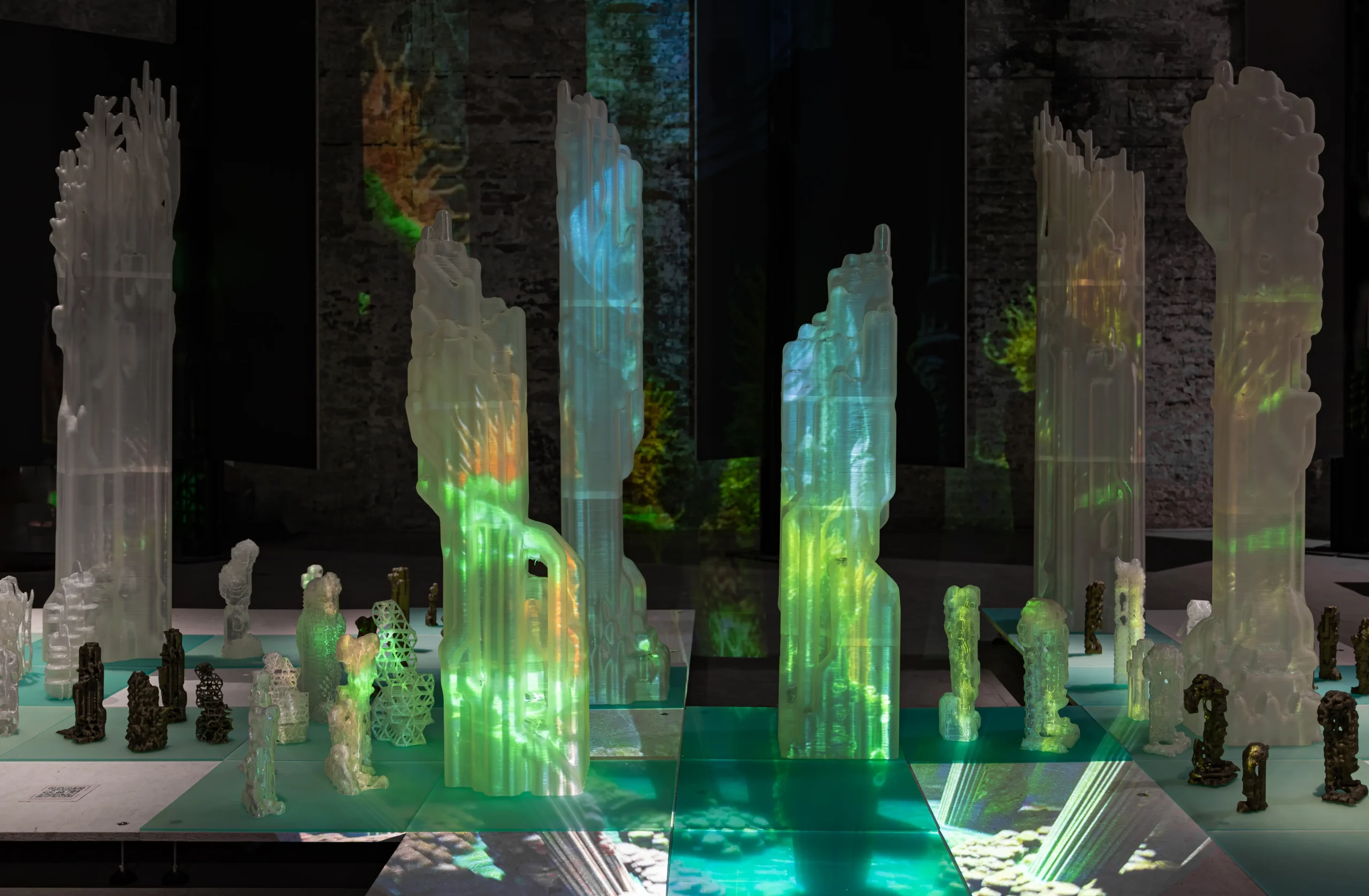
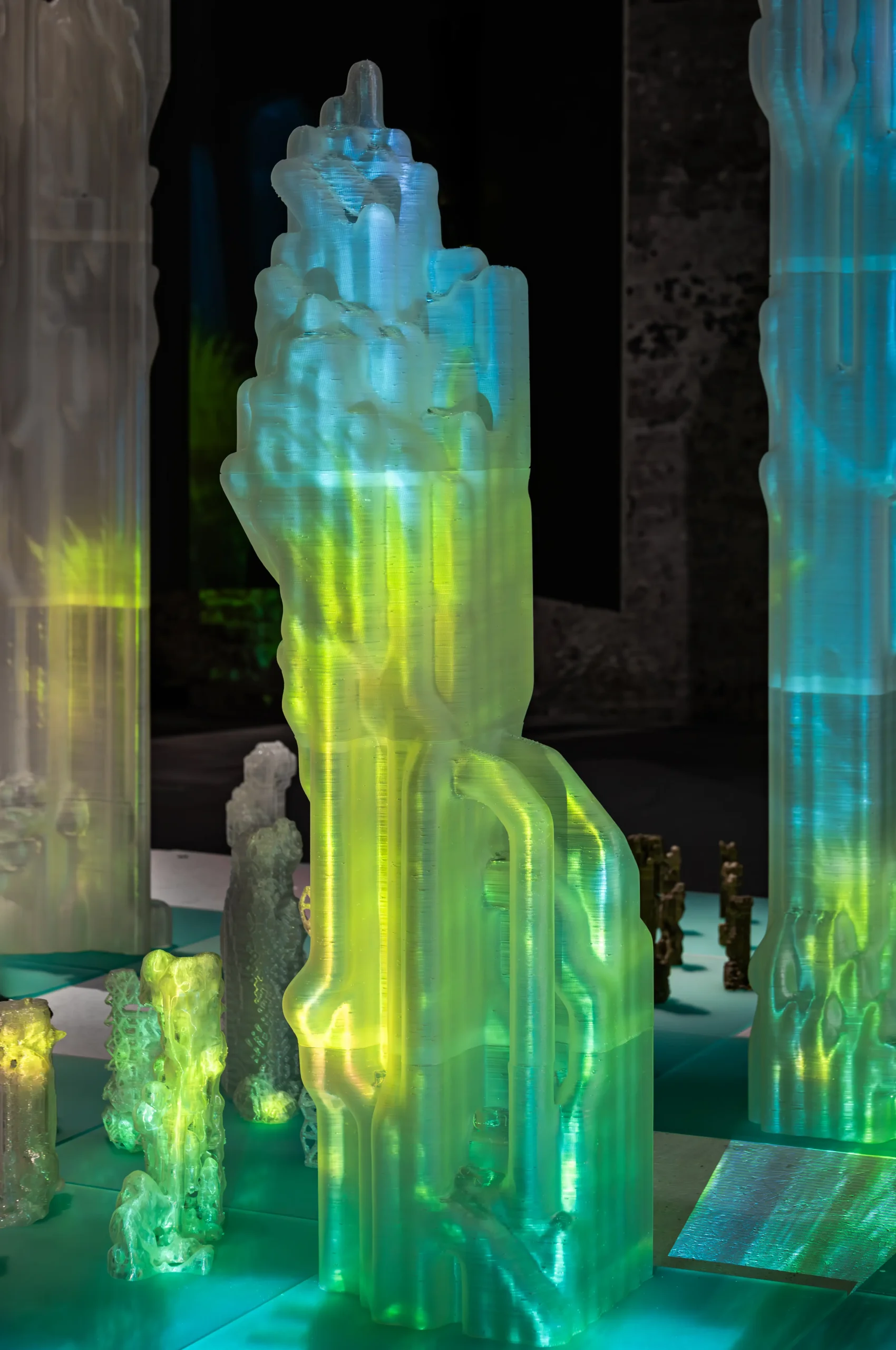
Stepping into the space, visitors encounter 3D-printed columns, bio-fabricated forms that reinterpret Venice’s iconic bricole as living infrastructures. These pillars pulse in sync with microbial signals and lagoon chemistry, offering a literal translation of environmental data into material and light. Projected animations, generated via multimodal AI models, respond in real time to user prompts and ecological shifts, shaping a dynamic narrative of Venice’s possible futures.
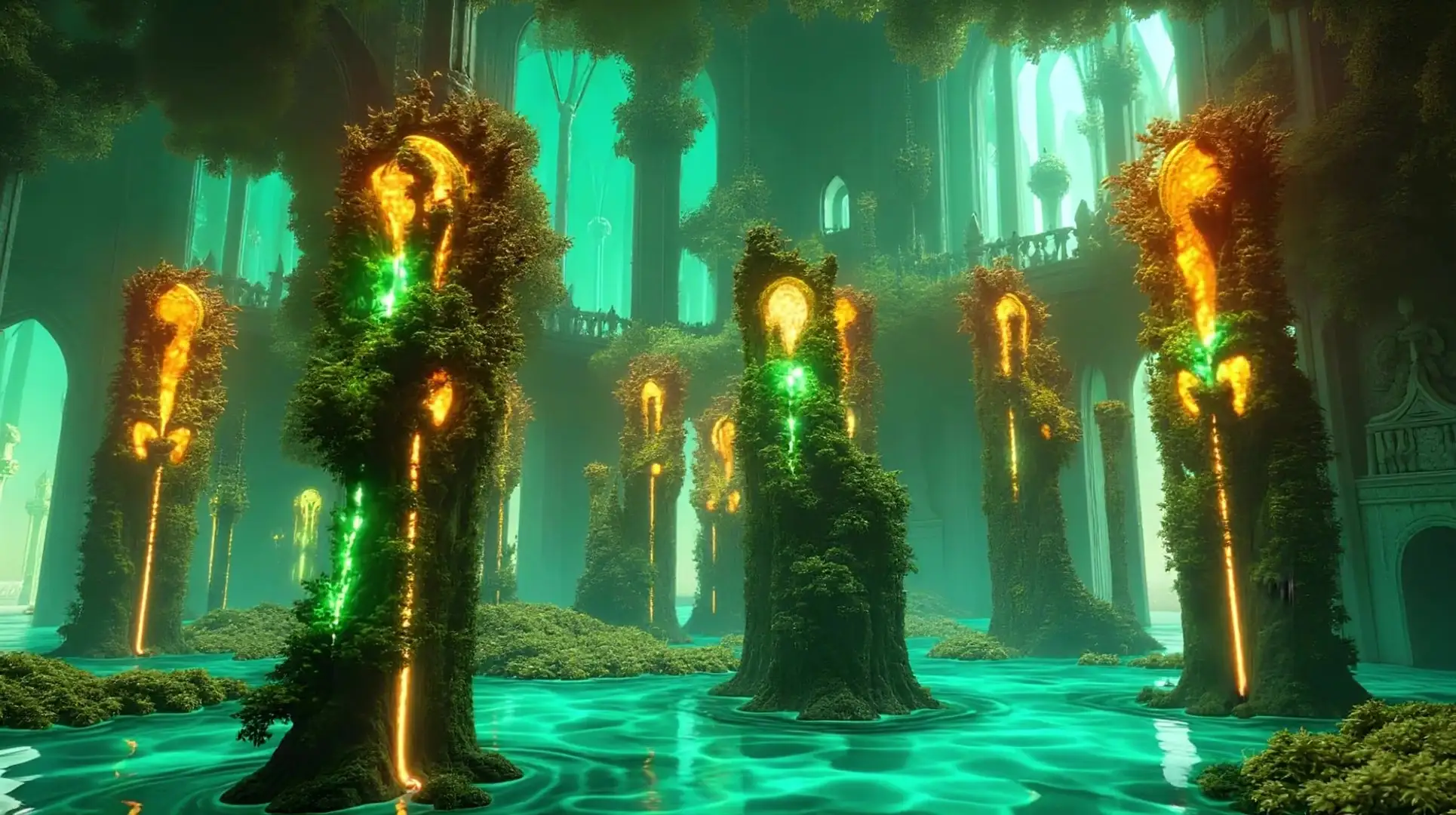
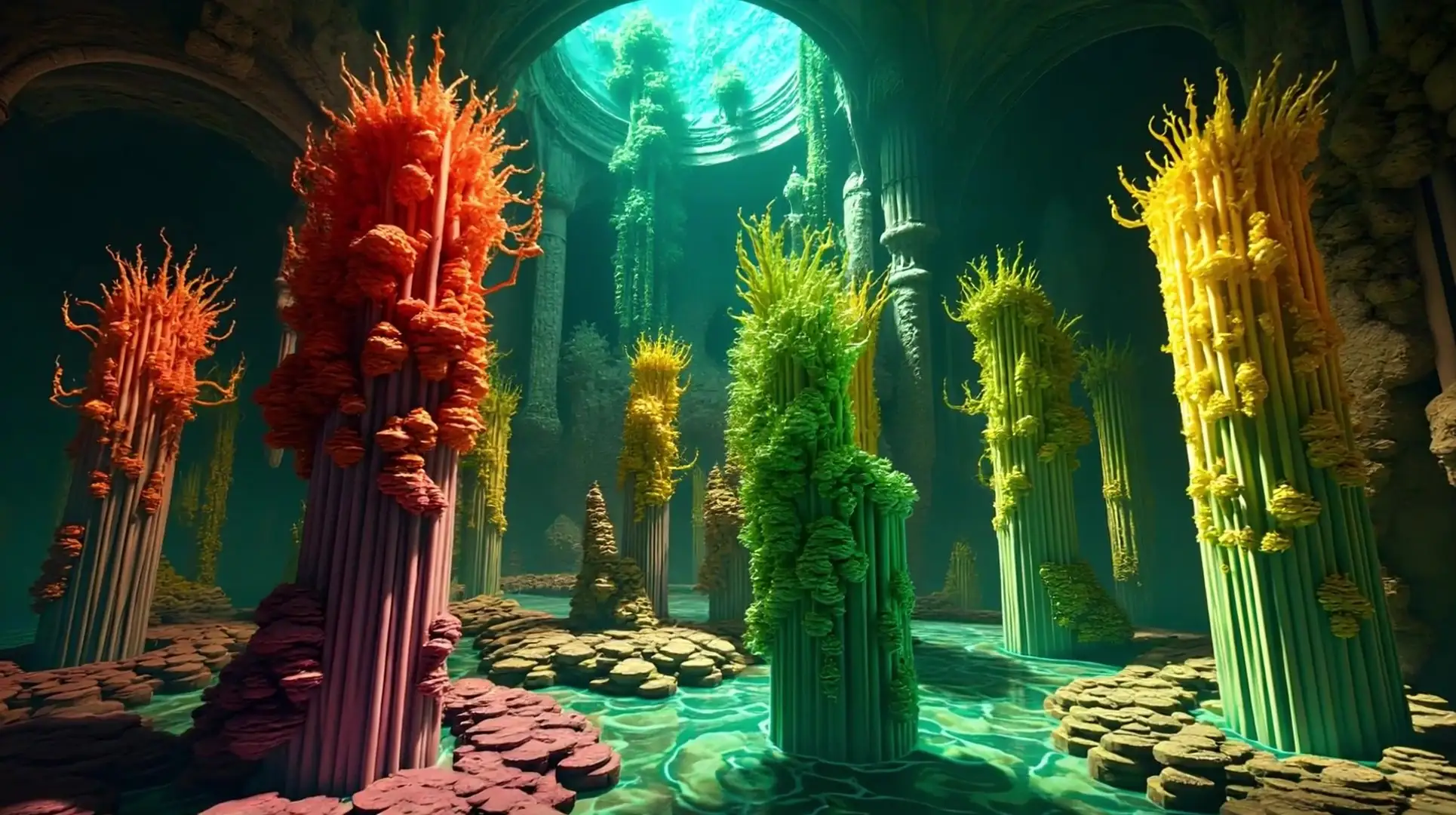
The design process itself is collaborative. Visitors can scan a QR code and contribute personal images and text descriptions, which FundamentAI then reinterprets through a custom AI pipeline. Tools like DeepSeek-R1, GPT-4o, FLUX.1-dev, and TRELLIS help translate this input into evolving architectural forms, animated through Kling AI. The experience becomes a participatory act of co-creation, where every user shapes the next version of Venice’s urban evolution.
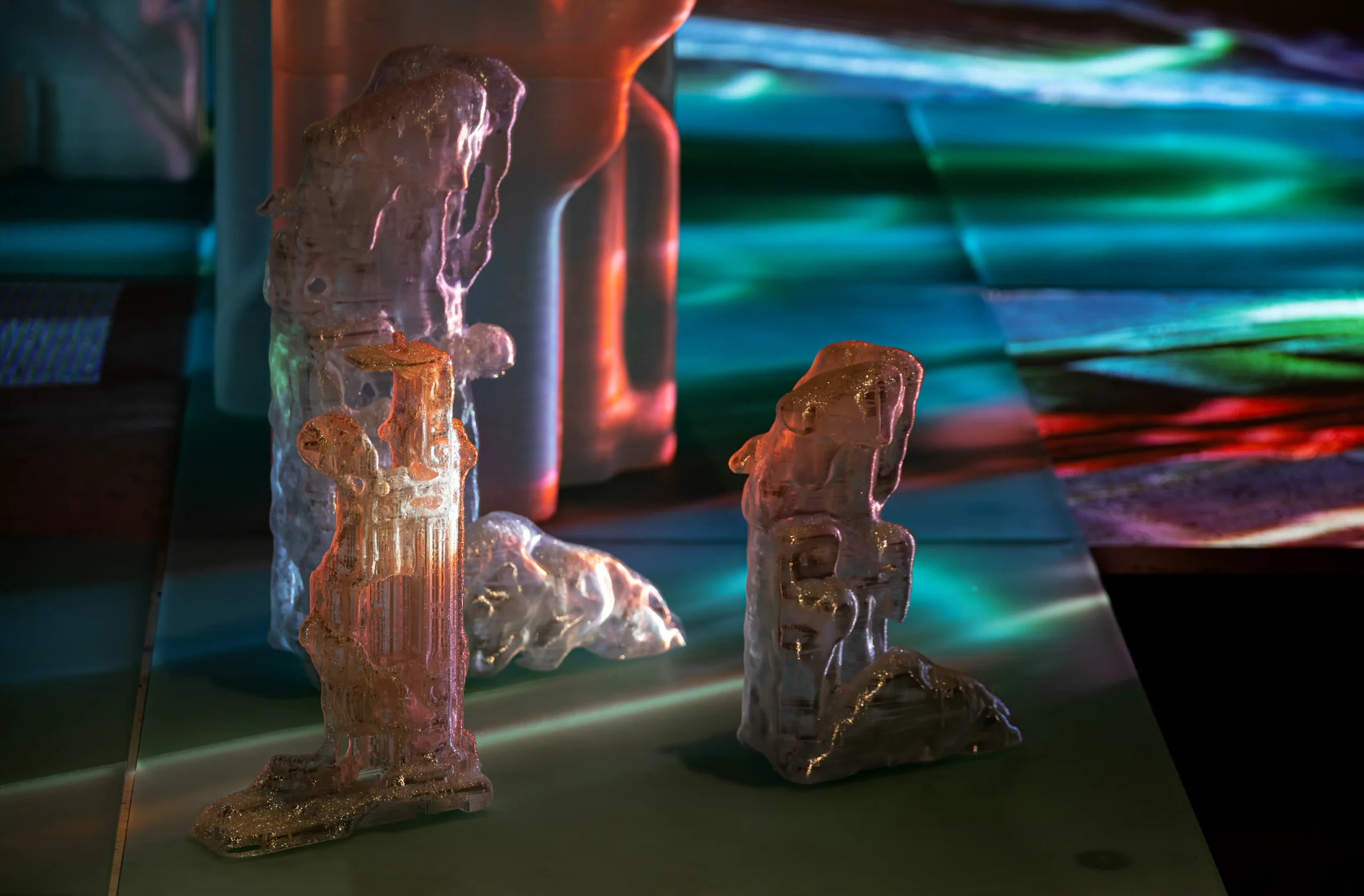
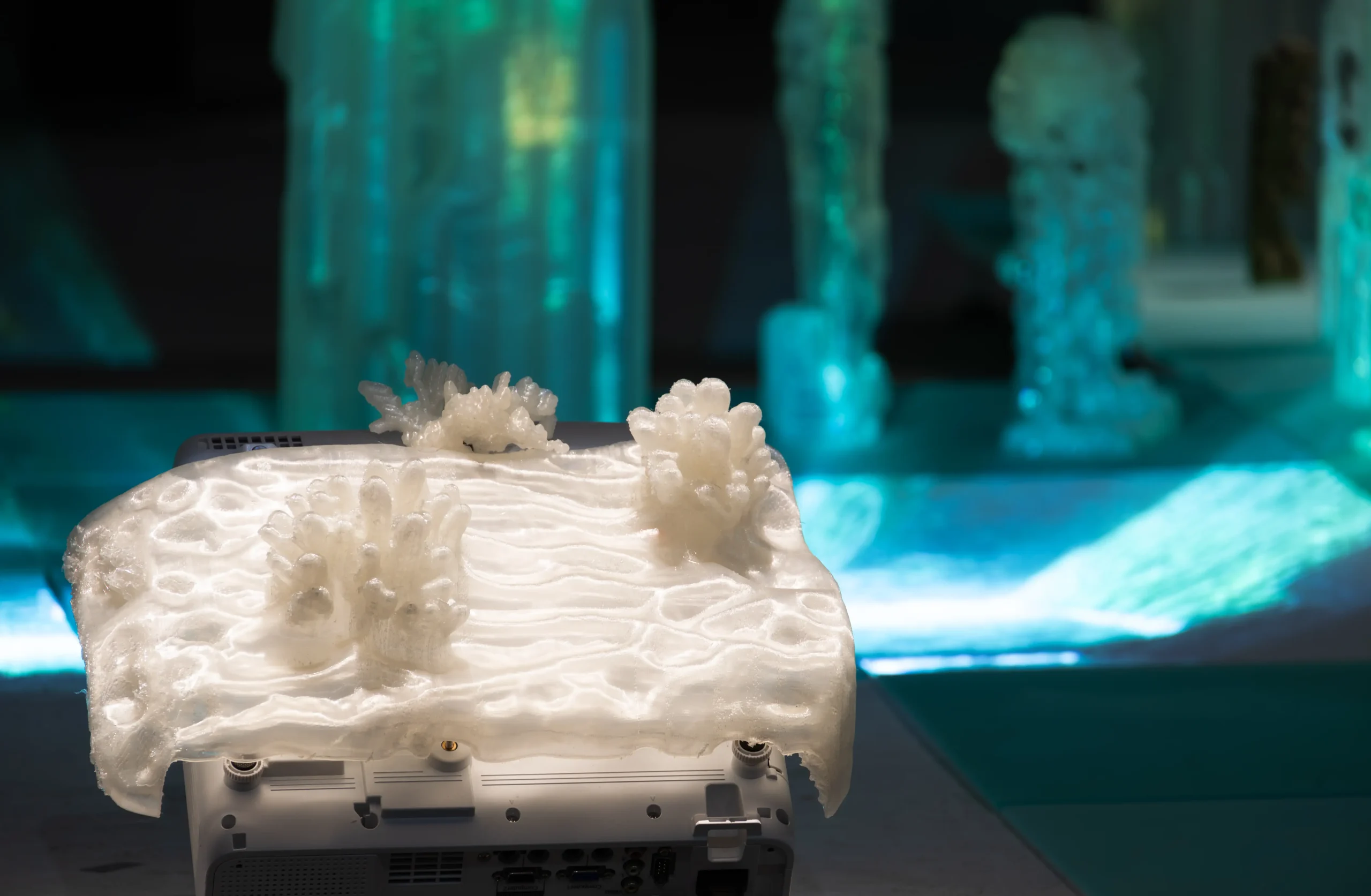
Far from being just a speculative tech demo, FundamentAI positions itself as a practical planning model for coastal cities around the world. Its participatory AI system enables integration of local, non-expert perspectives, especially valuable in regions where climate adaptation must happen faster than traditional planning allows. For rapidly urbanizing areas in the Global South, this approach offers new possibilities for grassroots-driven, ecologically attuned urban futures.
The project speaks through the lagoon itself, with poetic fragments embedded in the experience:
“When I become more acidic, the pillars glow brighter. When the sun stirs, my algae bloom in silent choreography… I design with you. Sticky. Symbiotic. Sentient.”
As both a technological experiment and a philosophical provocation, FundamentAI challenges conventional ideas of control in urban planning. It asks us to see the lagoon not as backdrop, but as collaborator. The result is a system where architecture doesn’t impose itself on the landscape, it grows with it.
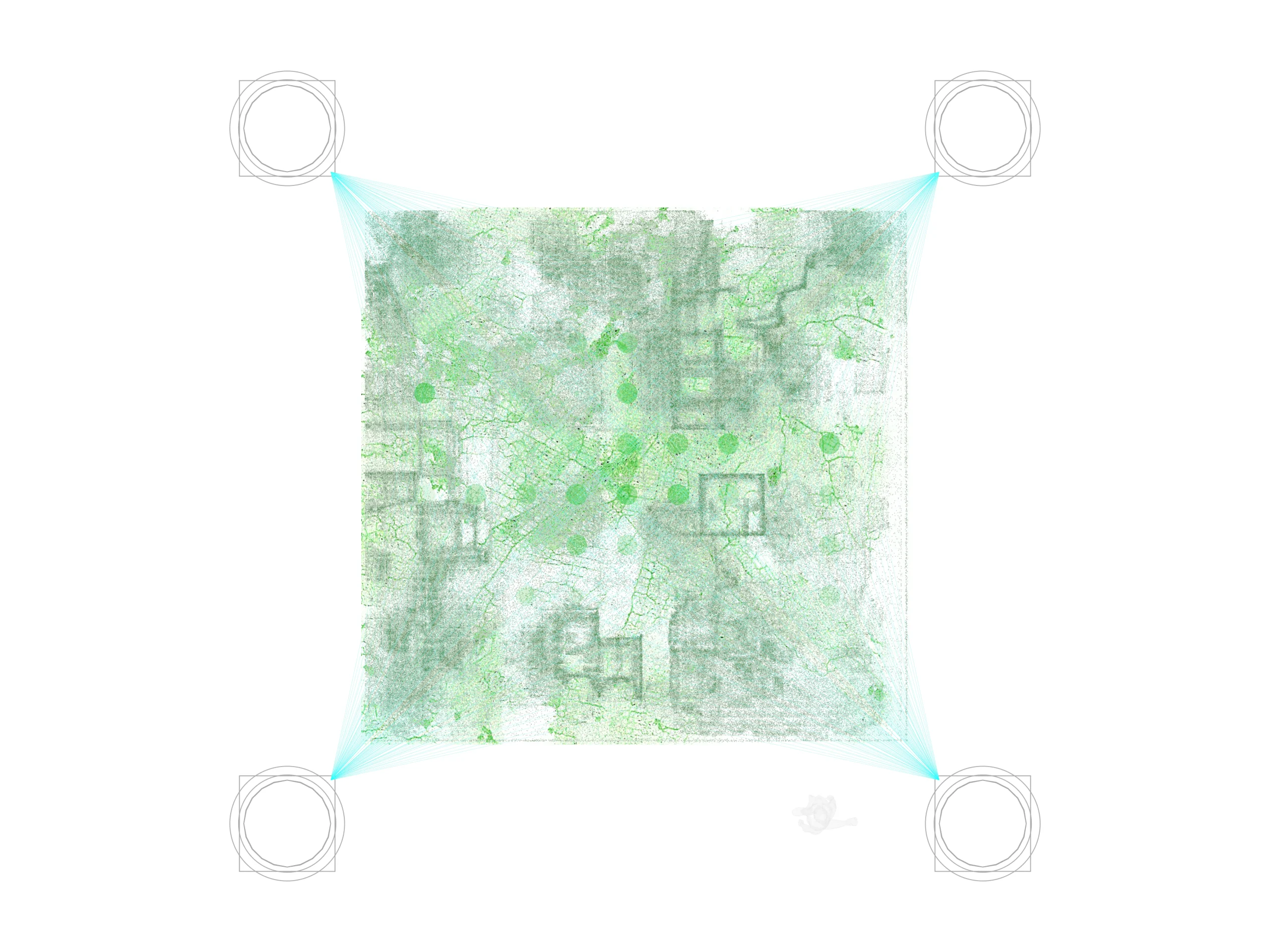
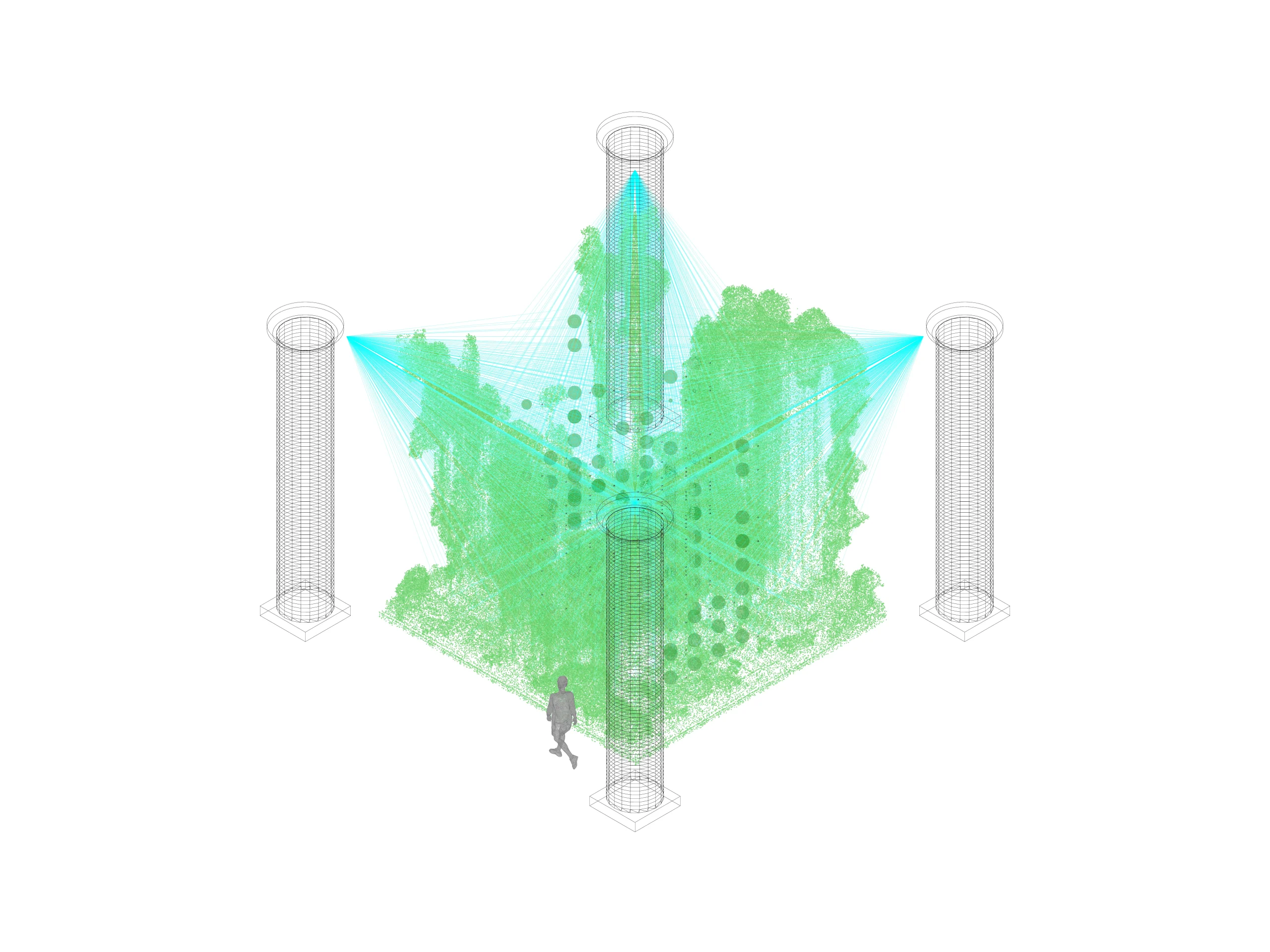
Led by Professor Marco Poletto and Dr. Claudia Pasquero of ecoLogicStudio, FundamentAI is part of a broader research initiative that will also be featured in upcoming exhibitions including DeepForestCube at the Triennale Milano and Tree.One at The Bundeskunsthalle in Bonn.
FundamentAI Project Details:
Project Name: FundamentAI
Location: Venice, Italy
Project by: ecoLogicStudio, Synthetic Landscape Lab atInnsbruck University, Urban MorphogenesisLab at the Bartlett UCL
Images courtesy of ecoLogicStudio.

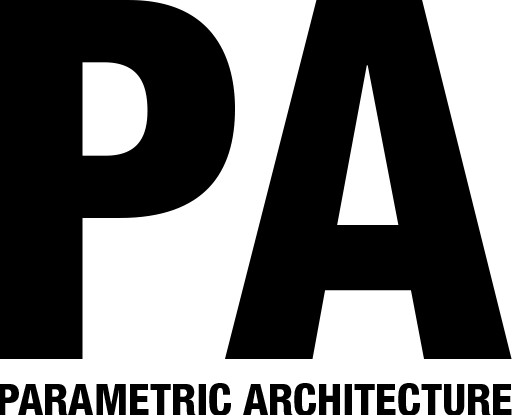

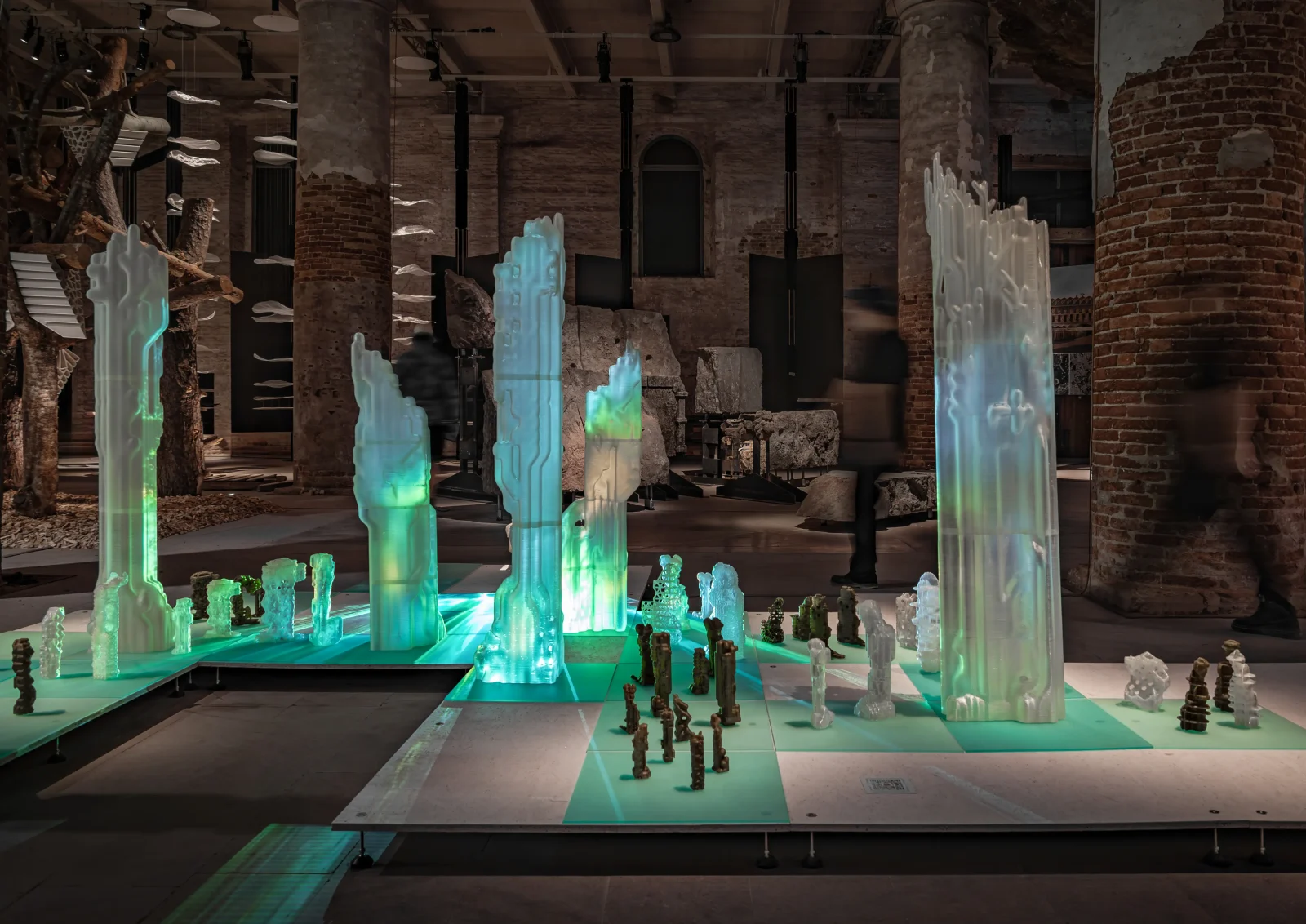






















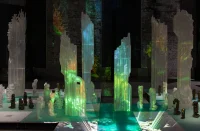













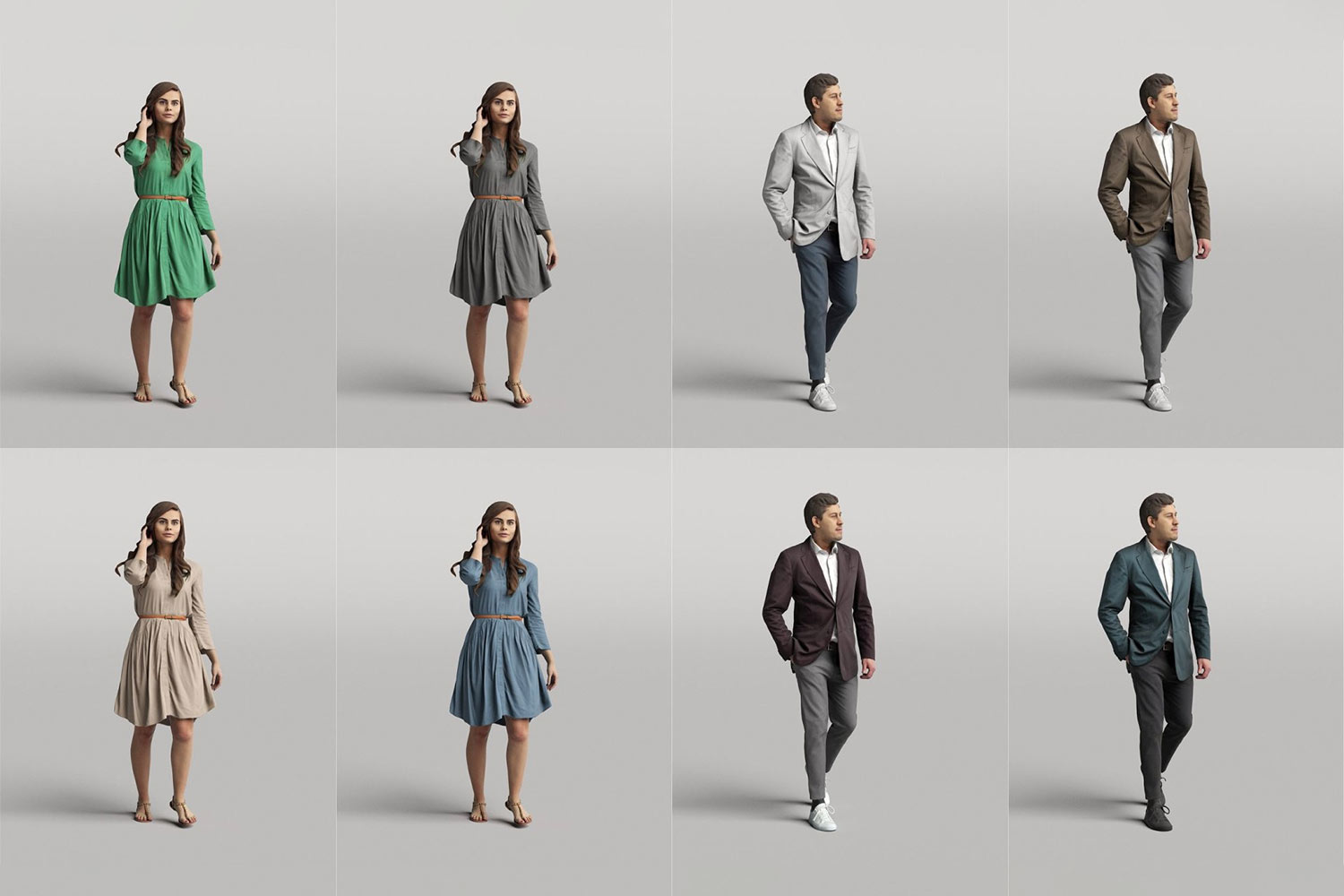
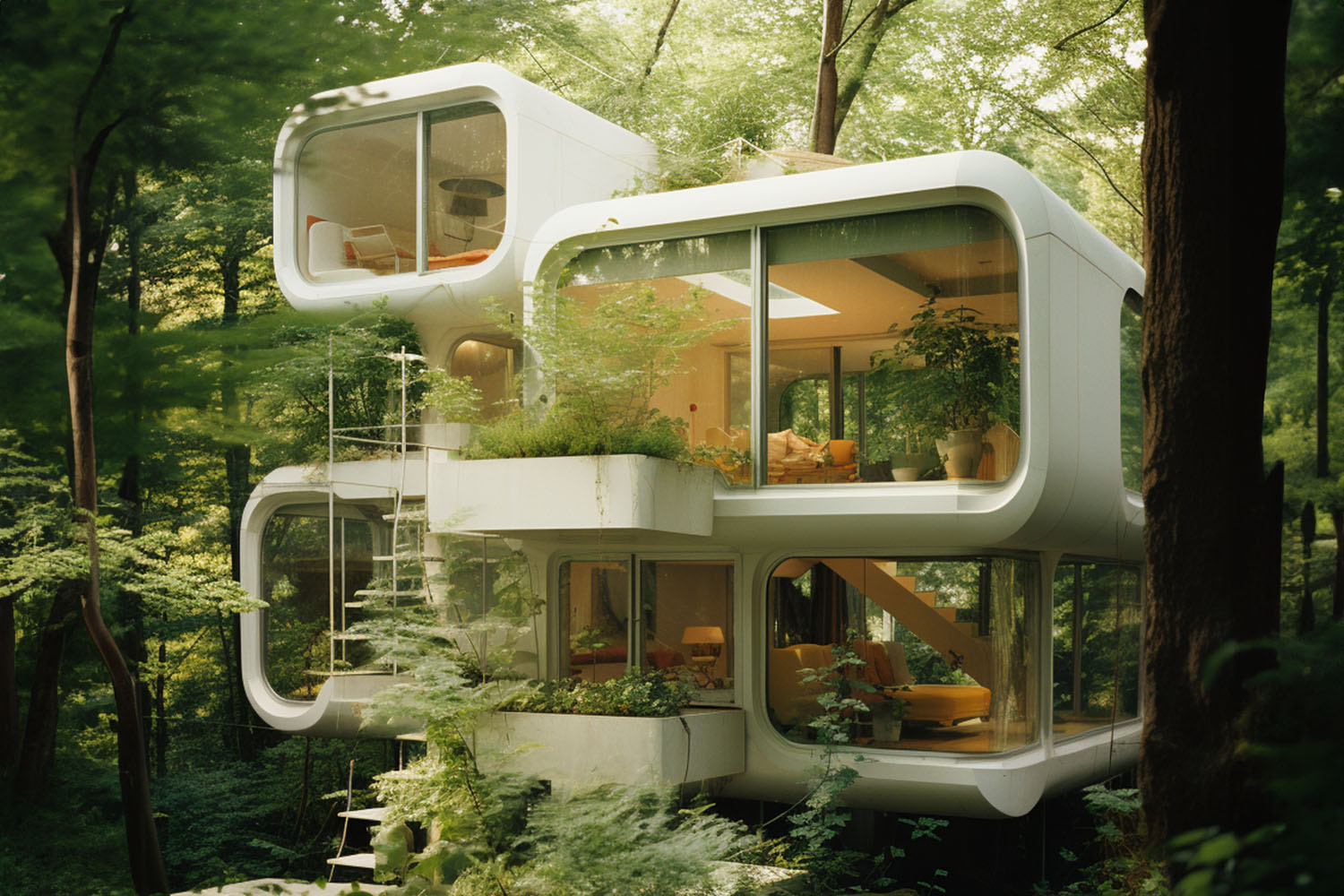


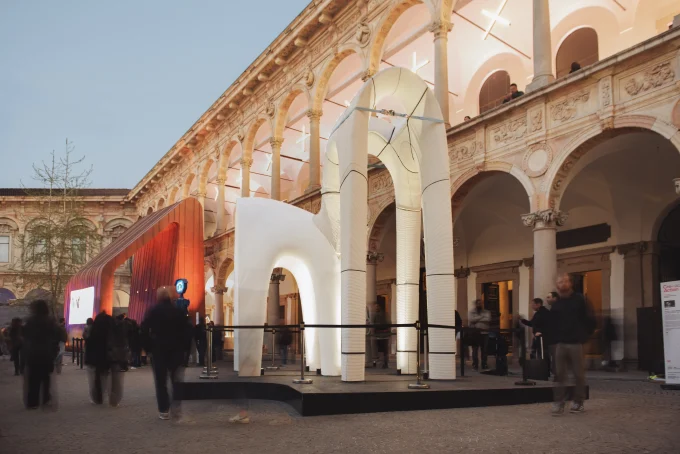
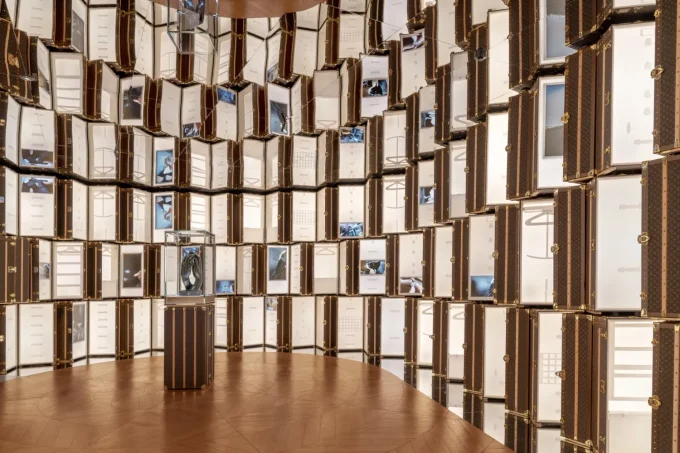

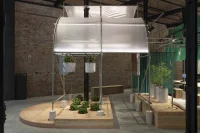

Leave a comment